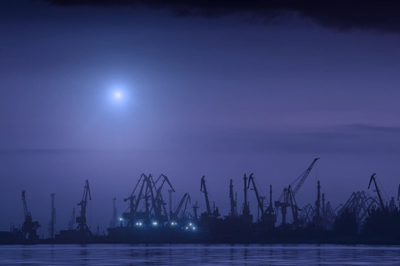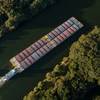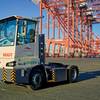Ship to Take Metal from Mariupol to Russia; Kyiv Decries Looting
A ship has entered the Ukrainian port of Mariupol for the first time since Russia completed its capture of the city to load metal and ship it east to Russia, TASS news agency reported on Saturday, in a move that Kyiv decried as looting.
A spokesperson for the port told TASS that the vessel would be loading 2,700 tonnes of metal before traveling 160 km (100 miles) east to the Russian city of Rostov-on-Don on Monday.
The spokesperson did not say where the metal being shipped had been produced.
Ukraine's Human Rights Ombudsman Lyudmyla Denisova said the shipment amounted to looting by Russia.
"Looting in the temporarily occupied territories of Ukraine continues," she wrote on the Telegram messaging app.
"Following the theft of Ukrainian grain, the occupiers resorted to exporting metal products from Mariupol."
Ukraine's largest steelmaker Metinvest on Friday said it was concerned that Russia may use several ships stranded in Mariupol to "steal and smuggle metallurgical products" belonging to the group. It accused Russia of piracy. Read full story
Asked on Saturday whether the metal due to be shipped out belonged to Metinvest, a company spokesman said: "We said yesterday that our metal is in the port of Mariupol, yes."
Russia seized full control of Mariupol last week when more than 2,400 Ukrainian fighters surrendered at the besieged Azovstal steelworks on the Azov Sea. It said on Thursday that the port had been demined and was open again to commercial vessels.
Moscow's capture of Mariupol helped it secure full control of the Sea of Azov coast and create a land bridge linking mainland Russia to Crimea, which it annexed from Ukraine in 2014.
Russia sent tens of thousands of troops into Ukraine on Feb. 24 in what it called a special operation to demilitarise its southern neighbor and rid it of nationalists threatening Russian speakers there.
Kyiv and Western countries have dismissed Russia's claims a baseless pretext to invade.
(Reporting by Reuters; Editing by Mark Trevelyan)















